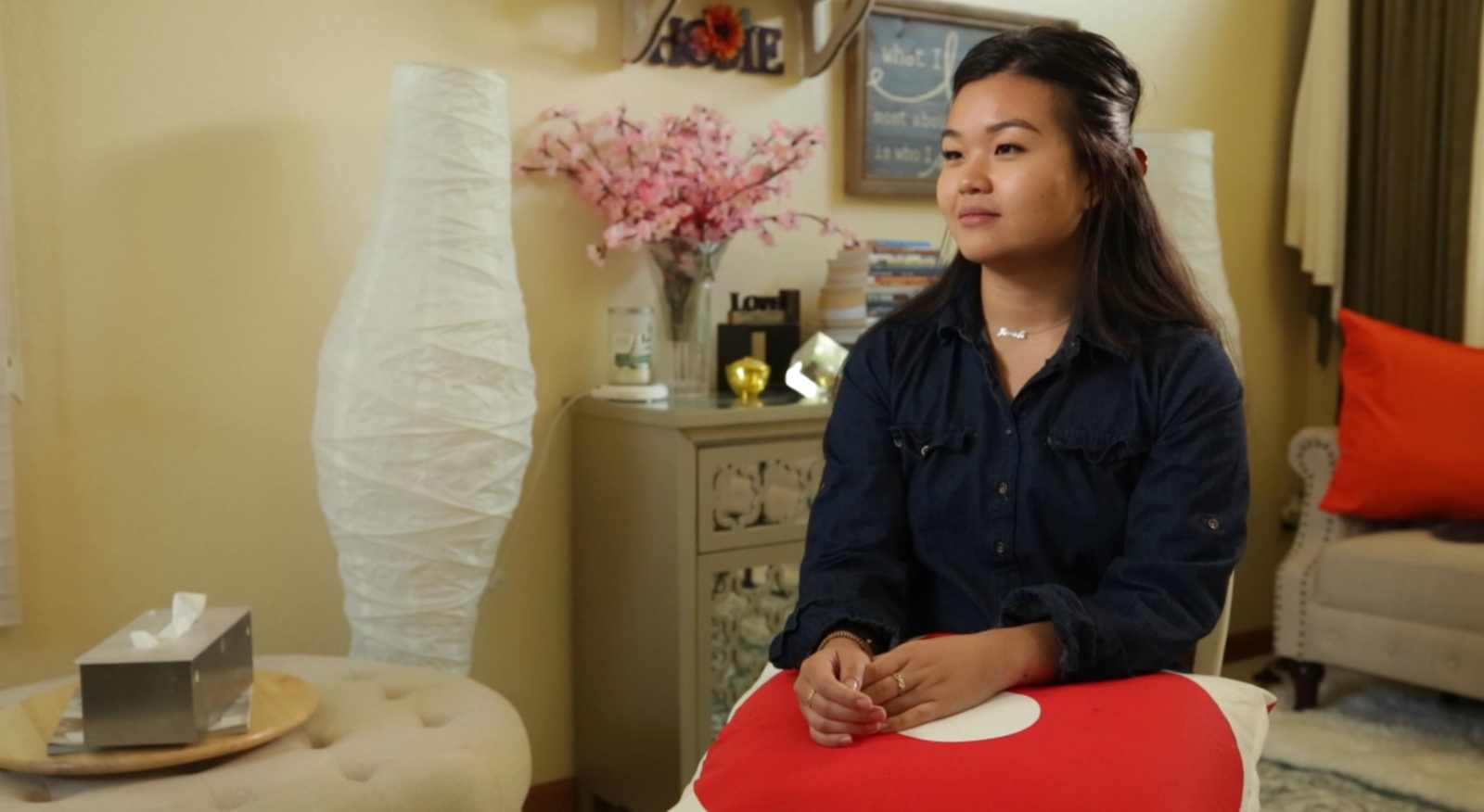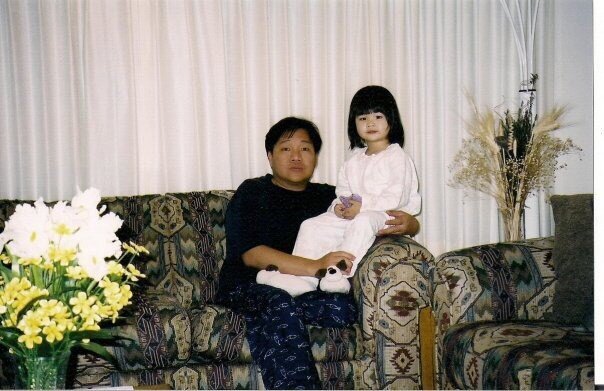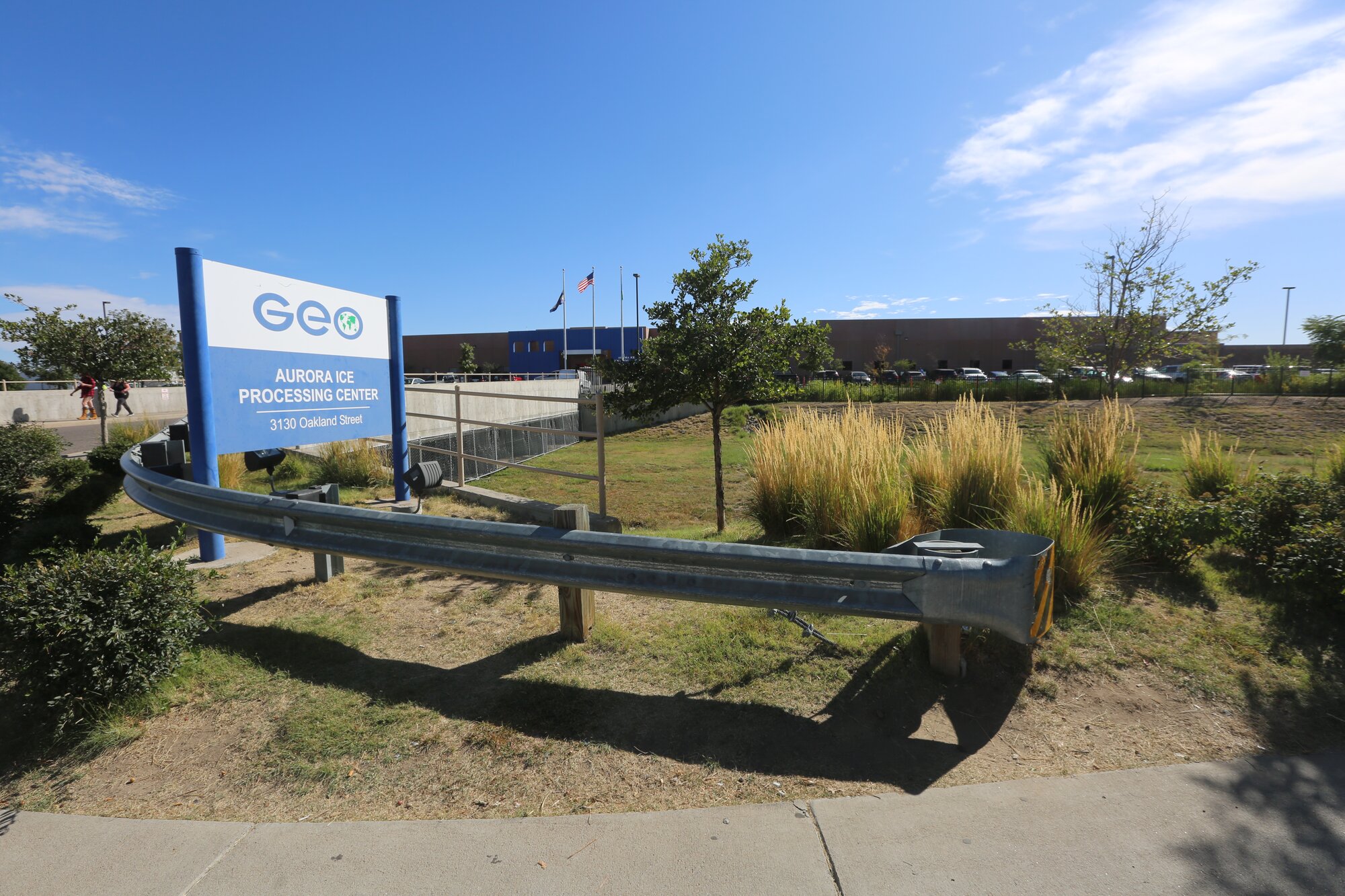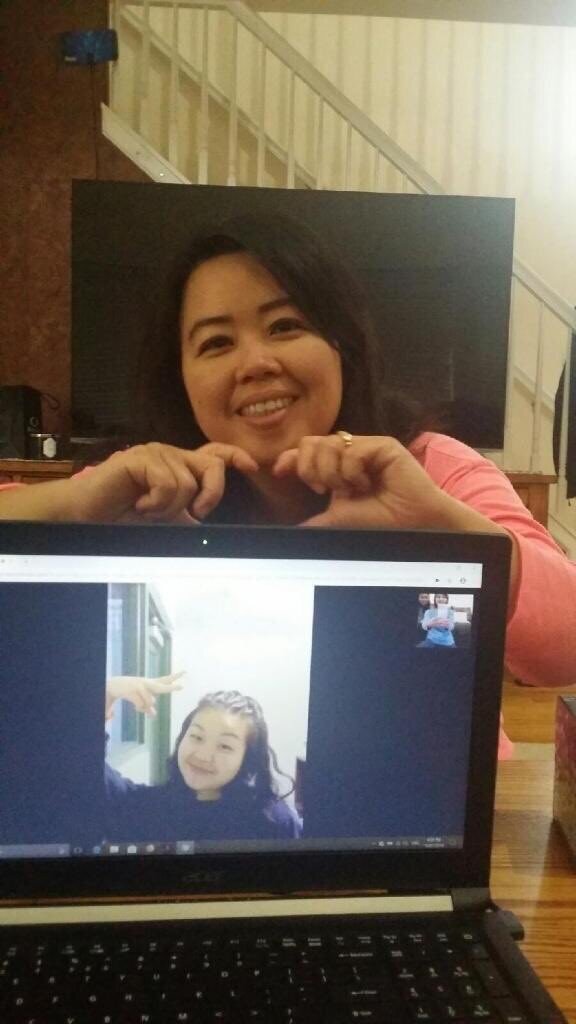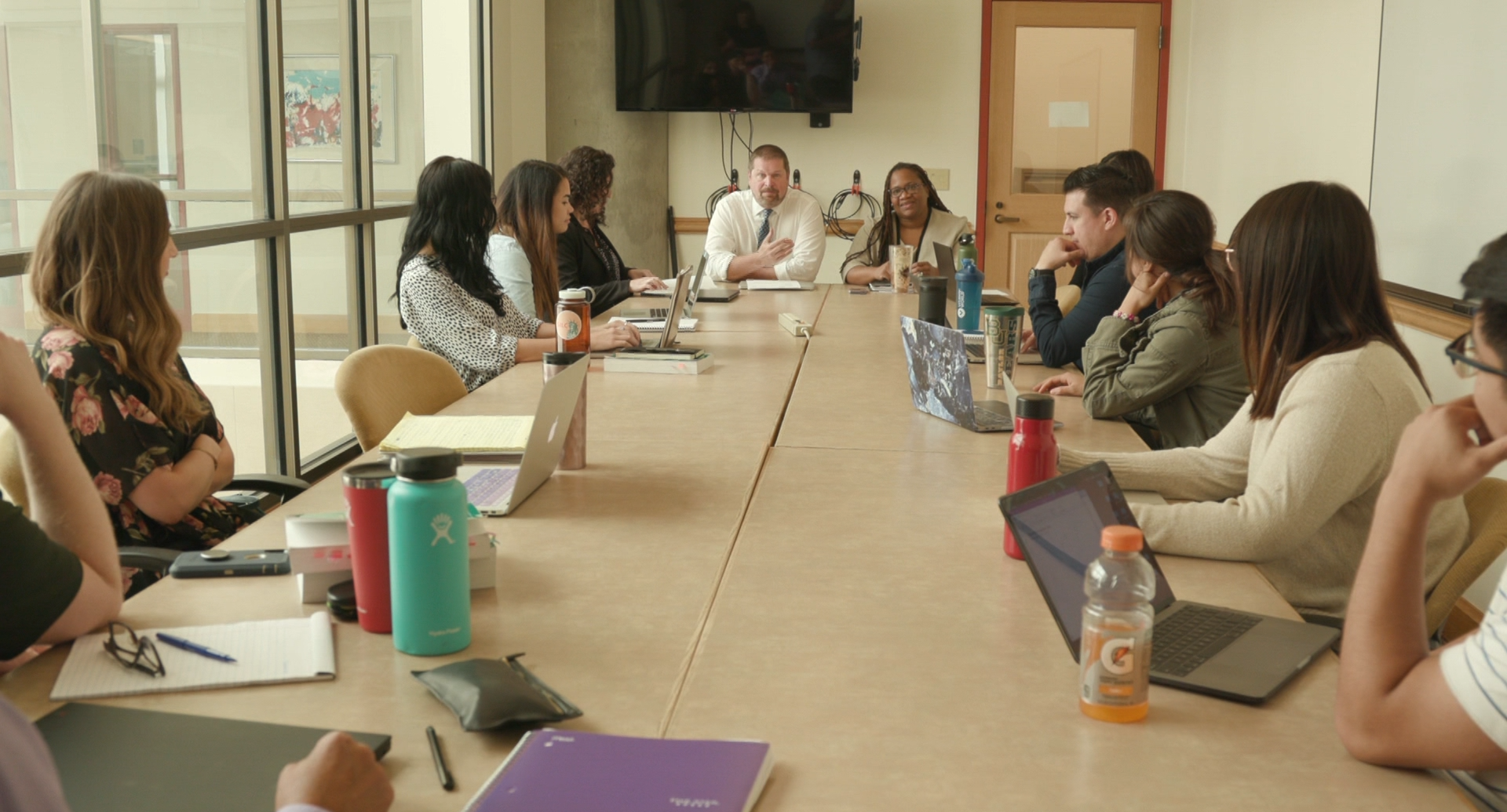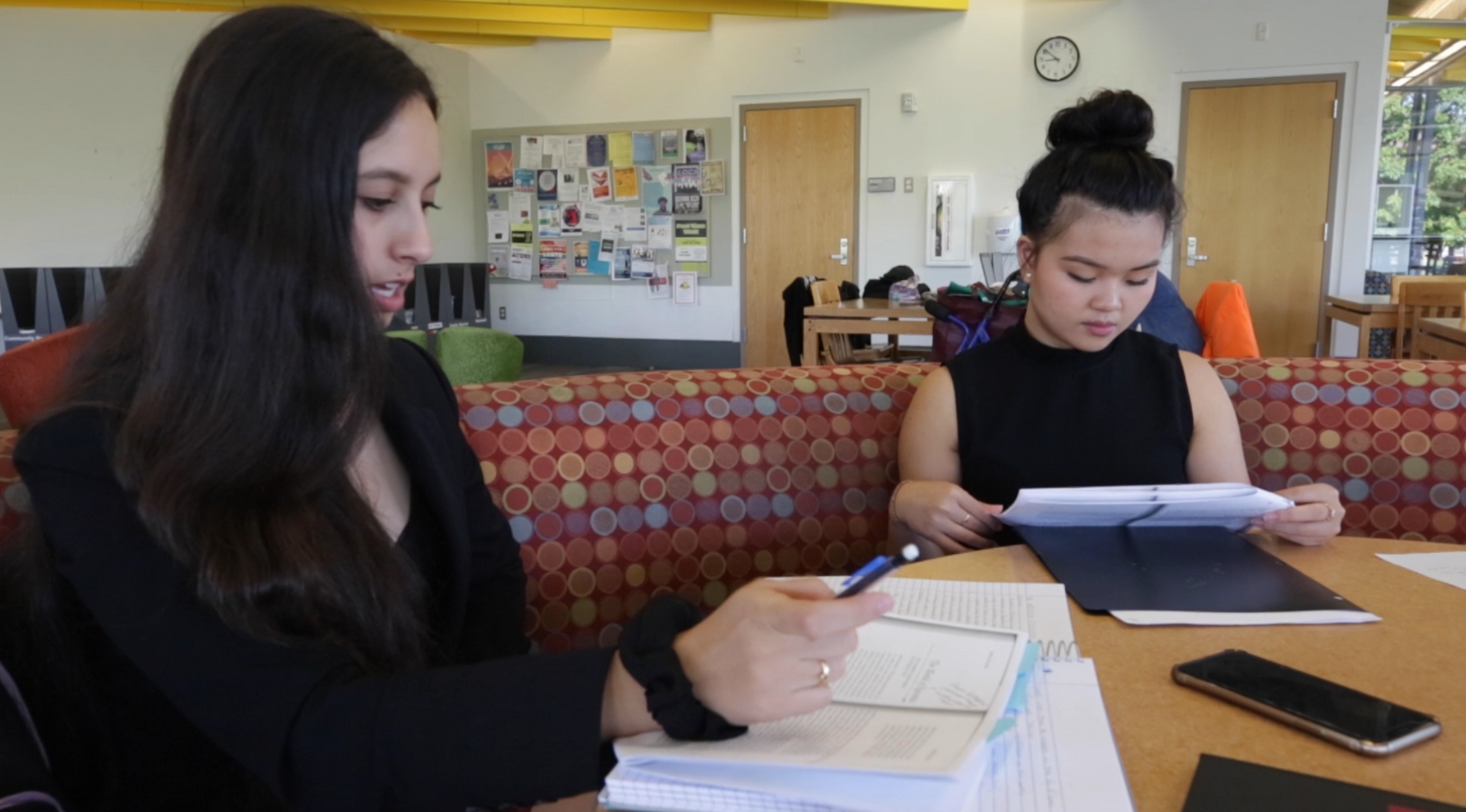Teen headed to tour college campus detained by ICE for 71 days

An 18-year-old Colorado honors student was detained by Immigration and Customs Enforcement (ICE) just days before she was set to begin her freshman year of college.
Keinada Andereas spent 71 days inside the Aurora immigration detention center last year.
“I’m just a regular teenager, why would they focus on coming to grab me and detain me?” Keinada said. “I felt like a criminal ... I felt like I was being punished.”
Keinada has no criminal record and came to the United States before her second birthday.
Her parents, Micko Andereas and Evyna Halim, moved their family to the U.S. from Indonesia amid religious conflicts they say left them in fear of being persecuted for their Christian faith.
The family has spent years pursuing a legal path to residency, arriving in the United States legally on tourist visas, then filing for asylum. After their asylum claims were rejected in 2007, an attorney for the family said Micko’s sister (who is a U.S. citizen) filed an application to sponsor her brother and his family for visas.
The family also appealed the asylum decision, but lost their appeals, resulting in final deportation orders being issued in 2008. But the government apparently did nothing to enforce those orders for years, and in 2011 approved the sponsorship application filed by Keinada’s aunt.
That approval simply put the family in the long line with millions of other people waiting for their visa applications to be finalized. They say they didn’t realize they were still at risk for being deported.
“It's not like we don't want to be citizens,” Keinada said. “We do, we want to go through the legal process.”
Keinada and her father had been in line for visas for nearly seven years when they were stopped by ICE in August of 2018. At first, Keinada said she thought her father was being stopped for speeding.
“My dad was hyperventilating,” Keinada said. “He's like, ‘That's not the cops … That’s ICE, that’s immigration.’ And when he said that, my heart just sank. [The officer] told us that we were being arrested because we had a deportation order back in 2008.”
ICE intercepted them on their way to tour the University of Colorado Denver campus, where Keinada was set to start her freshman year in just a few days. Instead they found themselves handcuffed on the side of a busy road.
Keinada said an ICE agent showed her photos printed from her Facebook page and said he had been working to track the family down for some time.
“I remember specifically he said he'd been stalking my information on Facebook,” Keinada said. “He waited for us to leave the house and then pulled us over.”
Father and daughter were booked into the privately-operated immigration detention center in Aurora.
“There were times when I'd rather get deported because of how much suffering I was going through in detention, how lonely I was,” Keinada said. “I remember calling my mom, I think like the first week of being detained, like, ‘Mom, let's just go home. Let's just go! I'd rather go to Indonesia and be together than be separated like this and feeling like me and my dad are getting punished. What did we do wrong?”
Her mother, Evyna Halim, was afraid to visit the detention center for fear she too would be detained by ICE. Instead she relied on video calls to communicate with her daughter and husband.
“I tried to be strong,” Halim said. “When my daughter called me, I hoped not to cry. Because I could hear her cry.”
Keinada and her father were detained in separate sections of the detention center and said they were not able to visit each other for weeks. Visits then stopped altogether for more than a month because Micko had to be quarantined when other detainees in his living quarters were diagnosed with chicken pox.
Officials at CU-Denver agreed to hold Keinada’s scholarships while she missed her first semester of school in detention. One official wrote in a letter that Keinada “will undoubtedly be an asset to our program and we are weaker for her absence.”
One of the first phone calls the teen made after being detained was to a former high school teacher. That teacher had a connection to the University of Denver’s immigration law clinic, which helps provide free representation to a small number of people detained in Aurora.
Unlike criminal defendants, immigration detainees are not entitled to court-appointed attorneys if they cannot afford representation.
“We try to look for cases that are particularly complex,” said Christopher Lasch, a DU law professor who is one of the directors of the clinic. “Certainly the Andreas case fit the bill there. It was a complicated case. It was going to cost them thousands of dollars to be able to hire a lawyer.”
Without Micko Andereas’s income, his wife and young son had to move out of their home and move in with friends from church. The offer of free representation proved to be invaluable for the family.
“Once the students met Keinada, who was arrested just days before she was set to begin her freshman year of college, that really resonated for the students,” Lasch said. “They felt an obligation to her that was deepened by the close proximity that they have in life to being there themselves. So I think they really wanted to go the extra distance.”
The students filed an argument in federal court for father and daughter to be released, and the government agreed to delay their deportations and release them from detention after 71 days.
Keinada got the news from a detention officer, who gave her a plastic bag to hold her belongings.
“I remember jumping out of bed. I was brushing my teeth and putting my shoes on at the same time,” she said. “I was giving hugs and goodbyes to all my friends and they're all clapping and cheering for me. That's what we do when someone gets released … And when I saw my dad out in the lobby, oh my gosh, that was a good moment. That was like a movie moment right there.”
After the joy of being released faded, Keinada struggled to return to normal life. The bubbly teen found herself feeling more reserved with friends. Police lights, sirens, and crowds made her anxious. And Keinada said she felt hopelessly behind when she finally began her freshman year, one semester late.
“I felt so overwhelmed,” she said. “Every little thing, if I messed up, I would beat myself up for it. Like, ‘What’s wrong with you?’ I found out there was something wrong with me, but it was fixable.”
Her university offered her counseling, which she says helped her to see the experience of being locked up for 71 days in a different light.
“Things just happen for a reason,” she said. “If I didn't get detained, I wouldn't have learned certain things about where the priorities of this country are. I know what it felt like to be dehumanized. I think that created a sense of more sympathy in me for other people. That's what we really need as a society. We're missing that.”
Keinada says she is now volunteering with local immigrants rights organizations and is working toward going to medical school.
The family is now working to resolve their immigration case. Attorneys told us the family is no longer in jeopardy of being detained because the government agreed to reopen their immigration case after releasing them from the Aurora facility.
This is the first in a series of stories examining the Aurora immigration detention center for the program “Insight with John Ferrugia,” which airs Thursday, October 24 at 7 p.m.
